September 28th, 2024 – English is Wild
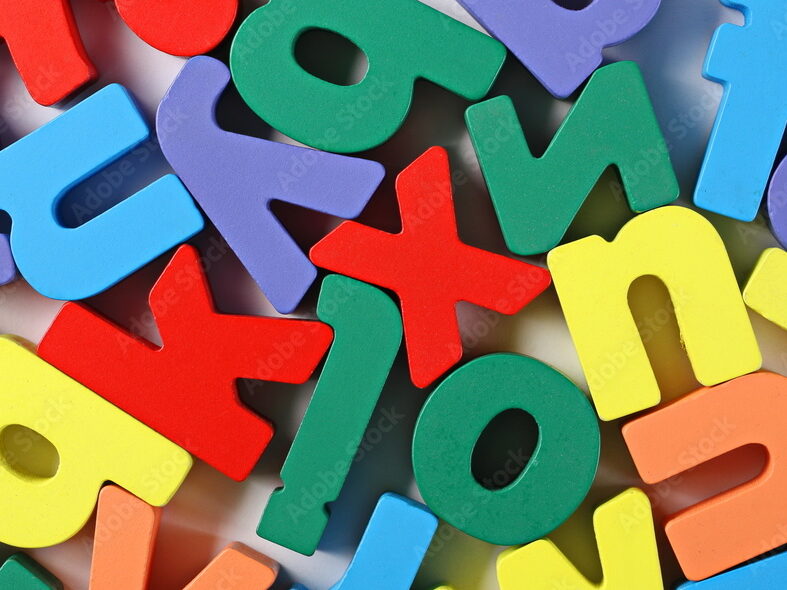
I have definitely said this before, but I will never stop saying it. English is easily one of the weirdest languages I’ve ever encountered.
I came across a video on one of my social media feeds recently that explained the concept of Kangaroo Words. If you don’t know what Kangaroo Words are, they are words that contain a synonym word with all the letters in order to spell that synonym word. The synonym word is called the Joey. Now, I didn’t know about this. I’ve never heard of this concept before. I was looking through the examples and was flabbergasted to see there were so many. I have never fallen down a rabbit hole faster.
Learning about Kangaroo Words led me to ask myself, “What other shenanigans are happening in the English alphabet that have just been existing under my nose?” This brought me into a lot of different articles and research, but I found a great article called, “Palindromes, anagrams, and 9 other names for alphabetical antics” posted by The Week. They outlined many interesting examples of English words with categorical phrasing I’ve never heard of before. I want to share with you some of the things I found. I learned so much from this deep dive, and now I want everyone else to have this knowledge too.

Kangaroo Words
As explained above, Kangaroo Words are words that contain a synonym word written in its correct form, called a Joey word. Some examples of a Kangaroo Word are:
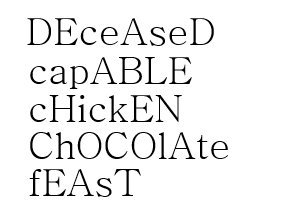
And my personal favorite:
pRInce CHarming
Isogram
A first-order isogram is a word in which no letter of the alphabet is repeated more than once. There are also second-order isograms where each letter appears twice. Some examples of first-order isograms include: uncopyrightable, ambidextrously, and birthplace. There are obviously smaller ones but I don’t think those ones are near as interesting or difficult.
Semordnilap
You may already be familiar with palindromes, which are words that are spelled the name forward and backward (think “kayak” or “mom.”) But did you know that a semordnilap (“palindromes” spelled backward) is actually a word that if spelled backward creates a different but equally correct word?
Some examples of this include: stressed (desserts), diaper (repaid), gateman (nametag), and deliver (reviled).
Tautonym
A term originally used by David Grambs to describe a word or name that consists of two identical parts. Some examples of this include: so-so, tom-tom, or bye-bye.
I hear these a lot in spoken English more so than I see them written down. I believe this is because it’s not very aesthetically pleasing in academic writing to use words so informally unless they are the formal name (such as TomTom, which is the copyrighted name of a GPS device.) But you will hear these types of words when speaking informally amongst friends or colleagues much more frequently.
Pangram
This is one I had learned in my youth, but I didn’t remember the name of it. A pangram is a phrase that includes all 26 letters of the alphabet with as little repetition of the letters as possible. I think everyone remembers “The quick brown fox jumped over the lazy sleeping dog.” But I don’t find that to be incredibly interesting or funny. So, I found some better ones:
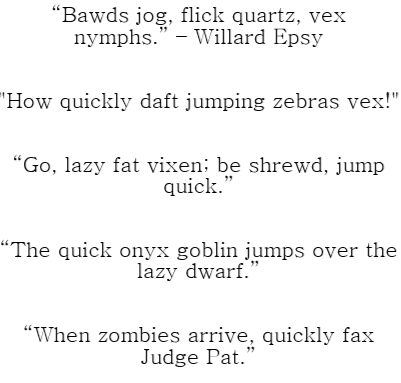
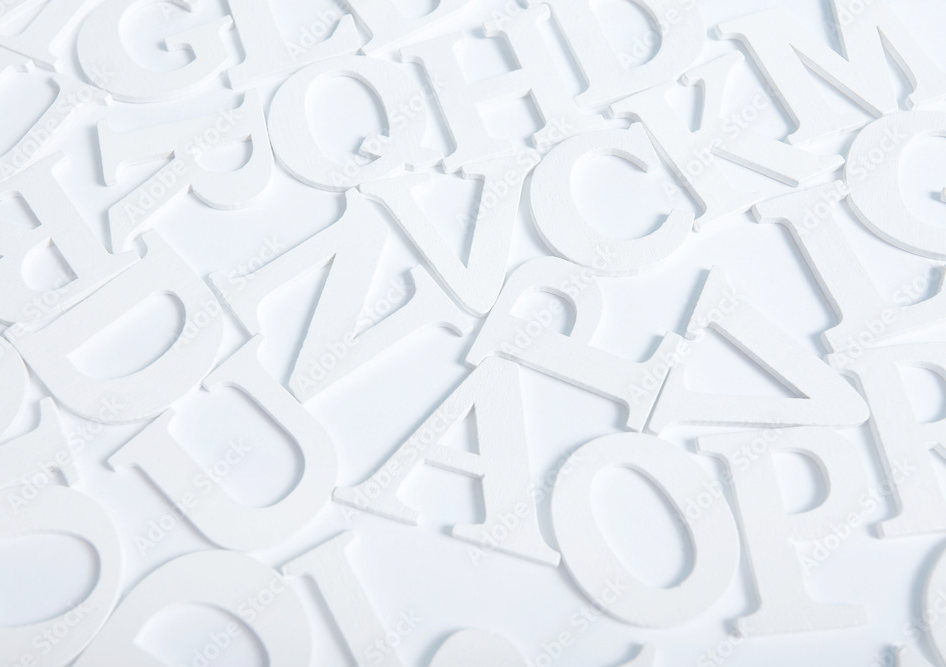
And by Honorable Mention
Rebus
I mention this honorably rather than including it because it doesn’t include only the alphabet. A rebus is any combination of words, pictures, letter names, or symbols that represent or suggest the sound of the full words. Have you ever seen one of those pictures of an eye, plus a heart, plus the letter U? “I love you”? Yeah, that’s a rebus.
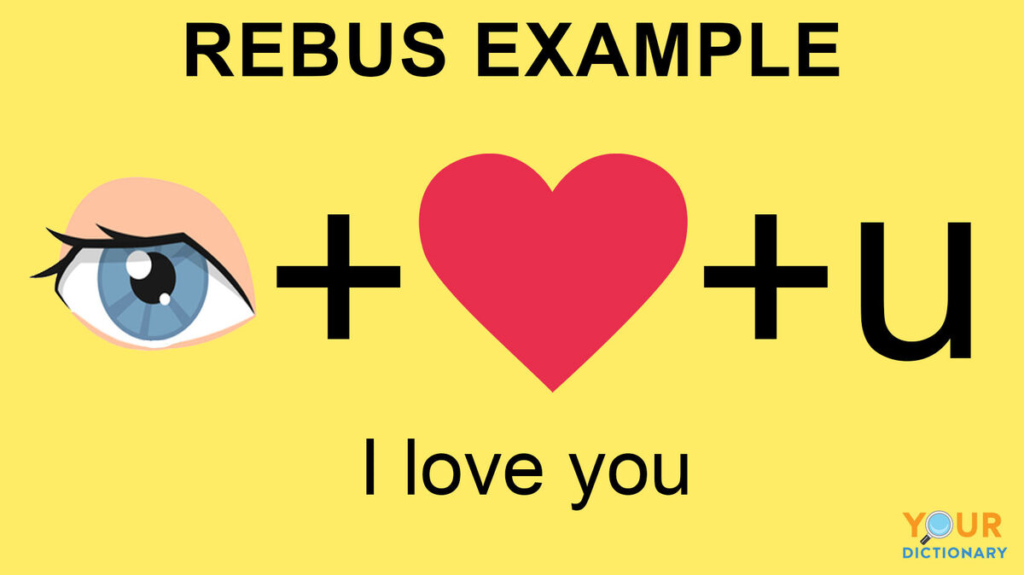
I didn’t know there was a word for these things before. I thought they existed on tourist t-shirts and mugs in New York City and that was that. But that’s not true, apparently. Here are some word examples.
YYUR; YYUB. ICUR YY4me
Too wise you are; too wise you be. I see you are too wise for me.
counCLOSEters
close encounters
VA DERS
Space invaders
faREDce
Red in the face
If you want to see some examples with pictures, you can follow this link which will take you to a page with about 25 of them.

In Conclusion
English is a wild language and anyone who tells you otherwise is lying. English is my mother tongue and I still learn new things about the language every single day. These are only a couple of examples of weird things that represent the English language. This deep dive opened my eyes to some incredibly weird things we have going on in this language. I will definitely be writing more posts on it later.
I hope you enjoyed this as much as I did! If you liked this post or want to share your own experiences and tips, make sure to leave a comment down below. If you want to see more, check out the last post below or the previous posts on the blog. And if you’re interested in learning more scopist, proofreading, or transcription information, make sure to check back for a new post on the Next Step Scopist blog!
—-
Sources
https://en.wikipedia.org/wiki/Pangram
https://theweek.com/articles/464433/palindromes-anagrams-9-other-names-alphabetical-antics
https://strategically.co/blog/grammar-tips/what-is-a-semordnilap
https://kinneybrothers.com/blog/blog/2020/10/23/fun-facts-76-uncopyrightable/#:~:text=First%2Dorder%20isograms%2C%20like%20uncopyrightable,couscous%2C%20intestines%2C%20and%20deed.
https://www.prdaily.com/16-clever-pangrams-for-word-lovers/
https://www.yourdictionary.com/articles/examples-rebuses
https://parade.com/1175283/marynliles/rebus-puzzles
—-
Home | Blog Home
Last Post: Should I Be Offering Free Trials/Samples?
Next Post: Interesting and Unique Traits of the English Language

Leave a Reply